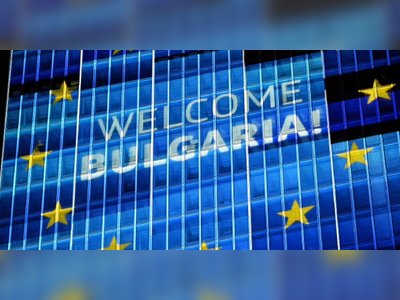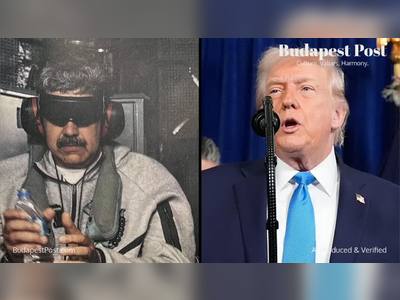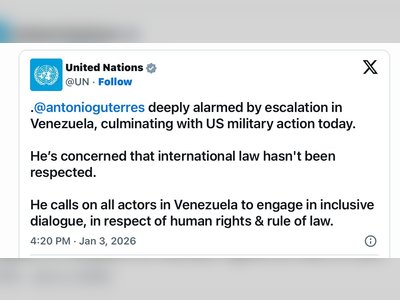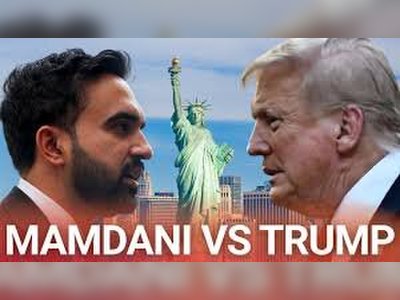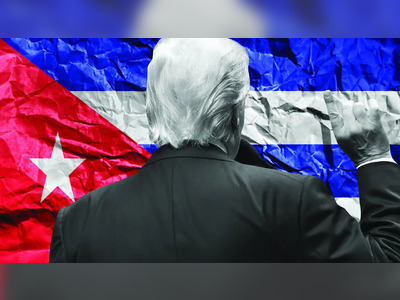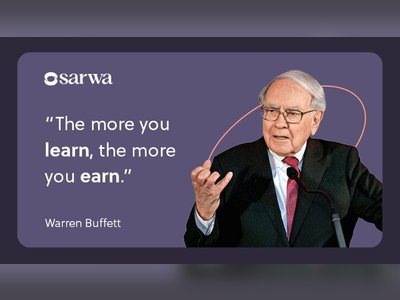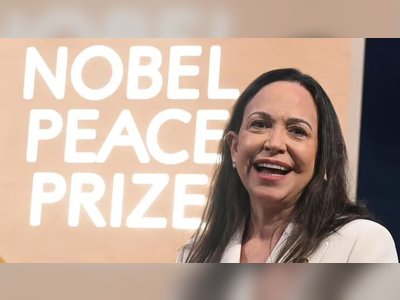Elon Musk's Global Political Maneuvering Causes Ripples Across Europe
As tensions rise, Musk's influence sparks debate over democratic processes in European Union and U.S.
Elon Musk, the billionaire CEO of Tesla and owner of the social media platform formerly known as Twitter, now rebranded as X, has become a central figure in the controversial political dynamics between the United States and Europe.
His actions and statements have drawn criticism for potentially interfering with European democratic processes and promoting far-right ideologies.
Since acquiring Twitter in October 2022, Musk has taken significant steps to restore accounts previously banned for promoting extremist views, including those of Martin Sellner, the founder of the Austrian Identitarian Movement.
Sellner had connections to Brenton Tarrant, the 2019 Christchurch mosque shooter, raising concerns about the platform's role in amplifying extremist voices.
Musk's controversial decisions have included reinstating accounts linked to figures such as the leader of the Australian National Socialist Network.
Observers have noted that Musk's behavior resembles that of an unofficial political influencer, particularly as he has assumed an advisory role to President-elect Donald Trump.
This relationship raises questions about the potential implications for international diplomacy, given Musk's frequent disregard for political correctness and diplomatic norms.
In an interview with El País, Marietje Schaake, a Stanford University researcher, expressed concerns over Musk's use of his platforms and wealth to bolster nationalist far-right leaders, warning of the dangers this could pose to democratic structures, particularly in Europe.
Schaake highlighted the parallels between Musk's actions and the support Russia has historically provided to similar movements within the EU.
Recently, Musk has publicly criticized the European Commission and the structure of the European Union itself, calling it 'undemocratic' despite such frameworks being enshrined in the EU's foundational treaties.
His remarks have undeniably ruffled feathers in EU institutions that aim to promote integration against nationalist sentiments.
The situation escalated when Musk criticized the UK's Labour government, labeling it a 'tyrannical police state' and called for a general election, stirring political tensions.
This follows the Labour Party's landslide victory under Keir Starmer in 2024.
In Germany, Musk has openly endorsed the far-right Alternative for Germany (AfD) party, urging voters to support them in the upcoming elections.
German political and media analysts, however, doubt such foreign influence will sway voters deeply embedded in the cultural rejection of external political directives.
The German president, Frank-Walter Steinmeier, criticized foreign intervention in domestic politics, to which Musk responded with undiplomatic derogations.
This dynamic has drawn parallels with historical instances where foreign entities sought to influence democratic elections in other nations, though commentators argue the current context is unprecedented.
In response to Musk's increased political engagement, key European figures like French President Emmanuel Macron have maintained diplomatic poise, avoiding direct confrontation while counteracting external influences on European political affairs.
However, internal EU deliberations on regulatory measures against X suggest potential tightening of rules to mitigate Musk's influence.
Complicating this international tableau, Musk holds positive views of Italian Prime Minister Giorgia Meloni, which could play into US-EU dynamics under a Trump administration.
Yet, the unilateral nature of Musk's endorsements continues to raise questions about the role of influential tech figures in shaping geopolitical futures.
Ultimately, Musk's actions are prompting broader discussion about the intersection of technology, politics, and power in an increasingly interconnected world.
As European elections approach, the repercussions of these developments remain a focal point of speculation among political observers and stakeholders across the globe.
His actions and statements have drawn criticism for potentially interfering with European democratic processes and promoting far-right ideologies.
Since acquiring Twitter in October 2022, Musk has taken significant steps to restore accounts previously banned for promoting extremist views, including those of Martin Sellner, the founder of the Austrian Identitarian Movement.
Sellner had connections to Brenton Tarrant, the 2019 Christchurch mosque shooter, raising concerns about the platform's role in amplifying extremist voices.
Musk's controversial decisions have included reinstating accounts linked to figures such as the leader of the Australian National Socialist Network.
Observers have noted that Musk's behavior resembles that of an unofficial political influencer, particularly as he has assumed an advisory role to President-elect Donald Trump.
This relationship raises questions about the potential implications for international diplomacy, given Musk's frequent disregard for political correctness and diplomatic norms.
In an interview with El País, Marietje Schaake, a Stanford University researcher, expressed concerns over Musk's use of his platforms and wealth to bolster nationalist far-right leaders, warning of the dangers this could pose to democratic structures, particularly in Europe.
Schaake highlighted the parallels between Musk's actions and the support Russia has historically provided to similar movements within the EU.
Recently, Musk has publicly criticized the European Commission and the structure of the European Union itself, calling it 'undemocratic' despite such frameworks being enshrined in the EU's foundational treaties.
His remarks have undeniably ruffled feathers in EU institutions that aim to promote integration against nationalist sentiments.
The situation escalated when Musk criticized the UK's Labour government, labeling it a 'tyrannical police state' and called for a general election, stirring political tensions.
This follows the Labour Party's landslide victory under Keir Starmer in 2024.
In Germany, Musk has openly endorsed the far-right Alternative for Germany (AfD) party, urging voters to support them in the upcoming elections.
German political and media analysts, however, doubt such foreign influence will sway voters deeply embedded in the cultural rejection of external political directives.
The German president, Frank-Walter Steinmeier, criticized foreign intervention in domestic politics, to which Musk responded with undiplomatic derogations.
This dynamic has drawn parallels with historical instances where foreign entities sought to influence democratic elections in other nations, though commentators argue the current context is unprecedented.
In response to Musk's increased political engagement, key European figures like French President Emmanuel Macron have maintained diplomatic poise, avoiding direct confrontation while counteracting external influences on European political affairs.
However, internal EU deliberations on regulatory measures against X suggest potential tightening of rules to mitigate Musk's influence.
Complicating this international tableau, Musk holds positive views of Italian Prime Minister Giorgia Meloni, which could play into US-EU dynamics under a Trump administration.
Yet, the unilateral nature of Musk's endorsements continues to raise questions about the role of influential tech figures in shaping geopolitical futures.
Ultimately, Musk's actions are prompting broader discussion about the intersection of technology, politics, and power in an increasingly interconnected world.
As European elections approach, the repercussions of these developments remain a focal point of speculation among political observers and stakeholders across the globe.
AI Disclaimer: An advanced artificial intelligence (AI) system generated the content of this page on its own. This innovative technology conducts extensive research from a variety of reliable sources, performs rigorous fact-checking and verification, cleans up and balances biased or manipulated content, and presents a minimal factual summary that is just enough yet essential for you to function as an informed and educated citizen. Please keep in mind, however, that this system is an evolving technology, and as a result, the article may contain accidental inaccuracies or errors. We urge you to help us improve our site by reporting any inaccuracies you find using the "Contact Us" link at the bottom of this page. Your helpful feedback helps us improve our system and deliver more precise content. When you find an article of interest here, please look for the full and extensive coverage of this topic in traditional news sources, as they are written by professional journalists that we try to support, not replace. We appreciate your understanding and assistance.

